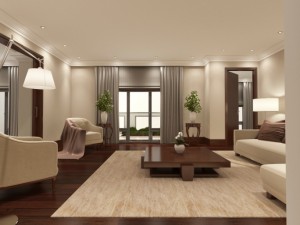 The phrase “Dress for Success” has a different meaning in real estate than it does in other businesses. You know that before you put your Stony Plain, Spruce Grove, Parkland County or Edmonton area home on the market, it’s important to clean it thoroughly, get rid of clutter, and make minor repairs. But these days, in order to sell your home in the shortest amount of time and for the best price, that’s not going far enough. The next step is home staging.
The phrase “Dress for Success” has a different meaning in real estate than it does in other businesses. You know that before you put your Stony Plain, Spruce Grove, Parkland County or Edmonton area home on the market, it’s important to clean it thoroughly, get rid of clutter, and make minor repairs. But these days, in order to sell your home in the shortest amount of time and for the best price, that’s not going far enough. The next step is home staging.
What is home staging?
Home staging is literally setting a scene and creating a mood – transforming an ordinary house into an attractive, welcoming home that any potential buyer might envision himself living in. The key is universal appeal.
Secrets of home staging
Home staging doesn’t mean erasing all evidence of the people living in the house, but it’s important to remember that how you live in your home and how you sell your home are two very different things.
Differences show up in the number and type of things on display, the size of furniture and how it’s arranged, and in the general state of cleanliness and tidiness. This is one situation where “good enough” probably isn’t! A perfectly staged home is going to resemble more a suite in a 4-star hotel – before a guest unpacks! – than the homes most of us grew up in or currently live in. With that in mind, here are a few things to know about home staging.
Update. The simplest and least costly upgrades, besides paint, include light fixtures, taps and faucets, door and cabinet hardware, switches and switch plates, and drapery and window treatments.
 Neutralize. Neutral colors for walls and floor coverings are best. People must be able to visualize themselves and their own possessions in the home so the decorating must serve only as a backdrop. Neutralize also means keeping things generic: “middle-of-the-road” décor, furnishings and accessories.
Neutralize. Neutral colors for walls and floor coverings are best. People must be able to visualize themselves and their own possessions in the home so the decorating must serve only as a backdrop. Neutralize also means keeping things generic: “middle-of-the-road” décor, furnishings and accessories.
Clean. Really, really clean; mother-in-law clean; brand-new-home clean….!
Edit. People must be able to see the space, not the stuff in the space. Corners must be visible, rooms must appear to be open and airy, closets need to look spacious and unfilled, and so on. This may mean that typical home sellers have to dispose of or pack up for off-site storage 30% to 80% of their possessions. For example, your kitchen counter should be as close to cleared off as you can make it, with maybe just a coffee maker and toaster to suggest its functionality. In the bathroom, remove all personal care items, cosmetics and the like from the counter, leaving perhaps just a fresh container of liquid soap next to the sink. And so on. Tip: Take a photo of a room in your house. Chances are the “too much” factor will be more evident in a picture.
Depersonalize: Small numbers of family photos, personal memorabilia and items connected to hobbies are fine. What isn’t fine is anything that detracts from a potential buyer seeing himself in the space. People don’t want to look at your toothbrush or razor in the bathroom, dirty dishes in the kitchen sink, or piles of clothing on the laundry room floor, for example. In other words, the place must not look used.
Tidy: Whatever items are left after possessions have been edited need to be arranged as neatly as possible. This means not only things readily visible but also everything in closets, drawers, cabinets and other storage spaces in every area of the house, including the garage and outdoors. As always, the point is to make spaces appear as roomy and functional as possible.
Sens e it. I’ve heard that 75% of the buyer’s decision is affected by the first 5 seconds through the front door. Sight and smell are going to be the most important senses in that first impression, and their impact is instantaneous. Never underestimate the effect of the sight and smell of fresh flowers!
e it. I’ve heard that 75% of the buyer’s decision is affected by the first 5 seconds through the front door. Sight and smell are going to be the most important senses in that first impression, and their impact is instantaneous. Never underestimate the effect of the sight and smell of fresh flowers!
Light it. Remember that home staging is about creating a mood. Warm and bright will sell your home.
Suggest. Of all the “secrets” of home staging, this is the most important. Suggest a feeling of hominess and coziness by arranging a few pieces of furniture, such as a pair of modest loveseats and a couple of smallish tables and lamps, in an appealing vignette which will make the buyer want to be a part of it. Add some accessories such as colorful cushions, a throw in a soft fabric, a couple of classic books or a tea service or a potted plant on a side table with a lamp turned on. Keep the number and size of items small to trick the eye into maximizing the proportions of the room. The phrase “less is more” is the very essence of home staging, employing subtlety, simplicity, refinement and classic design. Everything in a space is there to highlight the best features of the space. Tip: Visit a store like Ikea and study the room vignettes. These are perfect examples of home staging.
 Accessorize. Besides basic furniture appropriate to a given room, professional home stagers add a variety of accessories to hint at feelings or activities associated with that space. For example:
Accessorize. Besides basic furniture appropriate to a given room, professional home stagers add a variety of accessories to hint at feelings or activities associated with that space. For example:
- in the kitchen: a large bowl of fresh, colorful fruit; an open cookbook; a new matched set of tea towels and oven mitts
- in the bathroom: new clean towels tied with ribbons on the side of the tub; a spa basket of scented soaps and lotions on the counter; a small tray of scented candles
- in the bedroom: new bedcovering and extra pillows; a simple swag of fabric draped above the windows; a small ottoman with an afghan throw; small bedside tables with lamps turned on
- in the living room: mirrors; potted plants or silk flowers; area and throw rugs; a display of unusual knickknacks in a grouping of 1, 3 or 5 items
- on the patio or deck: a small patio table and a pair of chairs, with perhaps a potted plant on the table, to suggest a conversational grouping
While all of this may seem like a lot of work, most sellers who take the trouble to stage their homes really do see a better price within a shorter time frame.
Ready to sell your Spruce Grove, Stony Plain, Parkland County or Edmonton-area home? Contact me here, email me at barry@barryt.ca, or phone me at 780-910-9669.






 The phrase “Dress for Success” has a different meaning in real estate than it does in other businesses. You know that before you put your Stony Plain, Spruce Grove, Parkland County or Edmonton area home on the market, it’s important to clean it thoroughly, get rid of clutter, and make minor repairs. But these days, in order to sell your home in the shortest amount of time and for the best price, that’s not going far enough. The next step is home staging.
The phrase “Dress for Success” has a different meaning in real estate than it does in other businesses. You know that before you put your Stony Plain, Spruce Grove, Parkland County or Edmonton area home on the market, it’s important to clean it thoroughly, get rid of clutter, and make minor repairs. But these days, in order to sell your home in the shortest amount of time and for the best price, that’s not going far enough. The next step is home staging.


